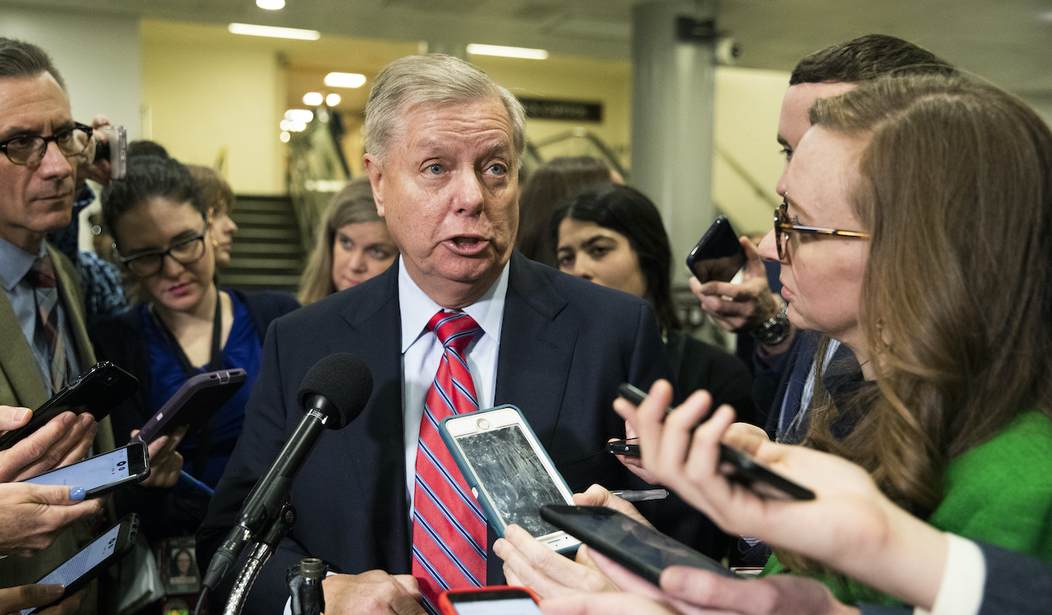We've been writing about the importance of US Senate races for months, for two reasons: First, if President Trump wins re-election, but the Democrats gain control of at least 51 Senate seats, his ability to continue to shape the judiciary -- his most significant legacy to date -- will be significantly hobbled, if not crippled. This scenario is possible but unlikely. If Trump defies the odds and secures another term, it seems far-fetched that Democrats would simultaneously net five Senate seats, including several in states Trump almost certainly would have just carried (although Senate Republicans could conceivably run behind Trump this cycle, unlike in 2016, when many of them ran ahead of the man at the top of their ticket).
The second scenario is more plausible and more urgent. If Joe Biden meets expectations and wins the presidency, and Democrats retain their House majority as anticipated, the US Senate could be the only lever of power standing in the way of unified Democratic control -- and potentially unified Democratic dominance. Would-be majority leader Chuck Schumer has openly stated that he'd like to add blue states to the union, and therefore Democratic senators. He's strongly indicated that he intends to blow up the legislative filibuster, which would empower him and Pelosi to pass whatever they want with simple majorities. And on the radical notion of packing the Supreme Court, about which Biden won't answer questions (Harris continued the pattern on Wednesday night), Schumer has averred that "everything" would be on the table if his party is put in charge.
One could make an argument that a Biden presidency, tempered by a GOP-held Senate, could result in a desirable "cool-down period" of divided government, after years of off-the-charts acrimony. But if a wave sweeps Republicans out of power entirely, Democratic leaders are signaling that they would move to consolidate their newfound power in ways that would attempt to make their advantage insurmountable or permanent. The party that had just spent four years loudly fretting about Trump's impact on "norms and institutions" is threatening to violate norms and reshape institutions as naked power grabs -- which would ignite a new and ferocious round of partisan fury. If Biden is indeed the strong frontrunner, then it's not unreasonable to conclude that a Republican Senate is a critical bulwark against massive overreach, and therefore an essential component to something approaching the type of "return to normalcy" with which Democrats are disingenuously tempting exhausted voters.
Recommended
Are Republicans in a position to keep the upper chamber? Yes, but I'm not sure they're the favorites to do so. Assuming Doug Jones is toast in Alabama, that would give Republicans an effective 54/46 edge, meaning that Democrats would need to pick off four GOP seats to gain a nominal majority (a 50/50 tie goes to the party that holds the presidency, due to the vice presidential tie-breaker). Given the favorability of the map this year, Democrats have multiple paths to that outcome. Maine and Colorado are their top targets. If they sweep those, which is entirely possible in Hillary-carried states, that cuts their task in half. All they'd need to do is win two of the following competitive races: Arizona, Iowa, Montana, and North Carolina. The good news for Republicans is that those are all states Trump won in 2016, so they represent tougher territory for Democrats. And there have been some hopeful, recent glimmers in those races. On the other hand, all four of those states were either carried by Barack Obama and/or have elected at least one Democratic senator, in recent cycles.
Furthermore, if this election year really breaks badly for the GOP -- as some party officials reportedly fear -- there are other Senate seats that could realistically pop onto the board: In Texas, where the Biden campaign is starting to spend money. In South Carolina, where things are awfully tight. In Kansas, which has gotten too close for comfort. And in Alaska, which is less solidly red than many people realize. Another factor at play is Democratic spending superiority, across the board:
Wow. 2020 ad spending by Party. https://t.co/Qu5w8kTqvQ pic.twitter.com/g7CeQGr2dT
— Bruce Mehlman (@bpmehlman) October 5, 2020
"Democrats are trouncing Republicans on the airwaves in the battle for the Senate, outspending them in nine of the top 10 competitive Senate races," Axios reports. Even before President Trump's COVID diagnosis, Republicans were growing increasingly concerned that Democrats' money advantage could flip control of the Senate." A GOP operative notes, "the only reason we're 'ahead' in Georgia is our 2 Senate candidates in one race." Because of the unusual circumstances in Georgia, there are three high-profile Republicans (including two incumbents) running for Senate. I'd also add that the chart above doesn't include South Carolina, where Lindsey Graham has warned that he's getting "overwhelmed" in the cash race. "They’re killing me, money-wise," he recently lamented. All of which is to say that as things stand, Democrats are probably the favorites to win back the Senate -- and every seat they gain beyond the 50, the more leeway they'll have to make drastic changes.
The stakes are high, and nothing is over yet. Republicans and right-leaning independents need to act, donate and vote accordingly. In case you missed it earlier in the week, I'll leave you with more tough news for Senate Republicans, with an eye toward the 2022 midterms. This seat would be a heck of a lot easier to hold with an incumbent:
NEWS: PA Sen Pat Toomey will not run for governor or reelection in 2022. Announcement expected Monday.
— Jonathan Tamari (@JonathanTamari) October 4, 2020
He'll serve out his current senate term.
w/ @wbender99 https://t.co/cGujTUwbxQ
























Join the conversation as a VIP Member